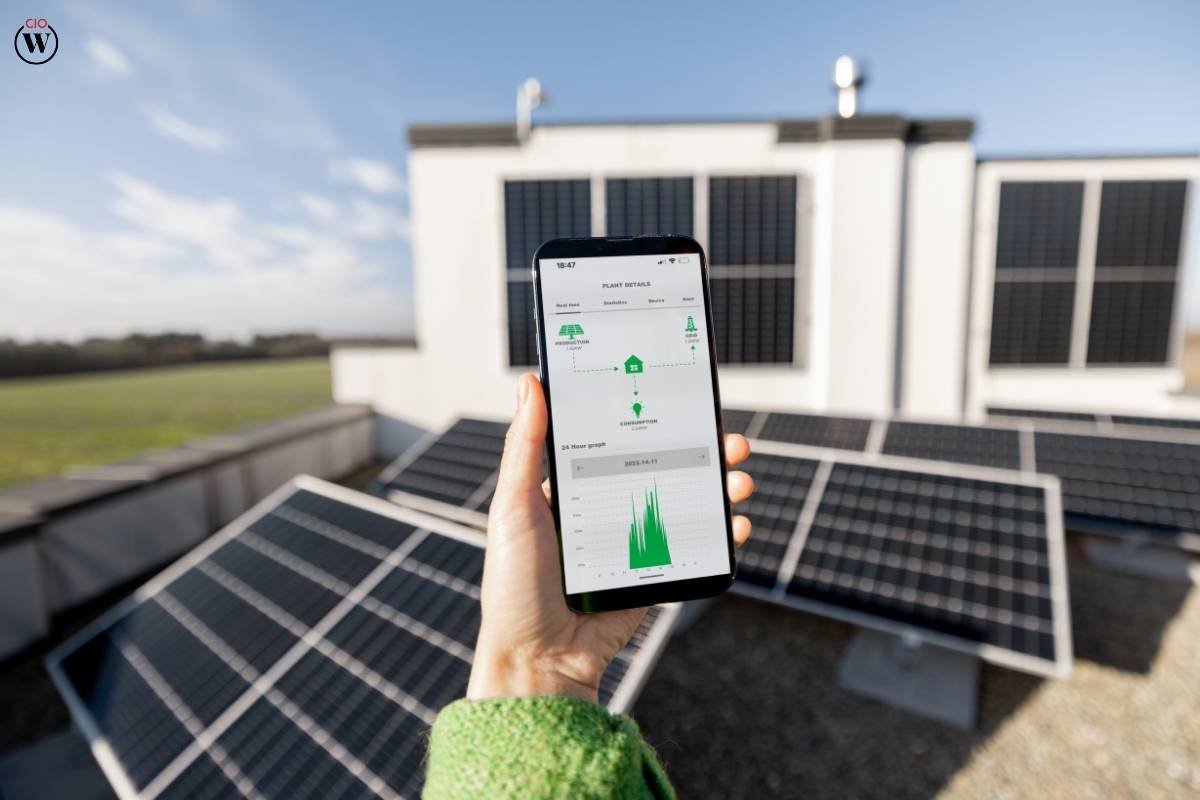The relentless pursuit of sustainable and eco-friendly energy sources has led to a growing reliance on solar power as a viable alternative. The impact of solar energy on the environment has become a focal point in discussions surrounding climate change and the need for cleaner, more sustainable energy solutions. This article delves into the positive effects of solar energy on the environment, exploring its potential to mitigate the adverse impacts of traditional energy sources and pave the way for a greener future.
Reduction of Greenhouse Gas Emissions
One of the primary benefits of solar energy is its ability to significantly reduce greenhouse gas emissions. Traditional energy sources such as coal and natural gas contribute to the release of carbon dioxide (CO2) and other harmful pollutants into the atmosphere, exacerbating the greenhouse effect and global warming. Solar power, on the other hand, generates electricity without emitting any greenhouse gases during operation. By harnessing the energy from the sun, solar panels offer a clean and sustainable alternative, helping to combat climate change and reduce the overall carbon footprint. This can contribute to the positive impact of solar energy on the environment.
Air and Water Pollution Mitigation

Conventional power plants often release pollutants into the air and water, causing harm to ecosystems and human health. The combustion of fossil fuels releases sulfur dioxide, nitrogen oxides, and particulate matter, leading to air pollution and acid rain. Solar energy systems, being emission-free, contribute significantly to mitigating air pollution. Moreover, solar power does not require water for cooling purposes, unlike many traditional power plants, thus minimizing the strain on water resources and preventing contamination.
Land Conservation and Biodiversity Preservation
Solar energy infrastructure, such as solar farms and rooftop installations, requires relatively little space compared to the vast land areas needed for fossil fuel extraction and power plants. This aspect of solar energy contributes to land conservation and the preservation of biodiversity. The reduction in land use for energy production helps protect natural habitats and ecosystems, preventing deforestation and habitat destruction associated with conventional energy sources.
The Impact of Solar Energy on the Environment: A Look at Economic Advantages
Apart from the ecological benefits, the adoption of solar energy brings about various economic advantages. The transition to solar power creates jobs, stimulates economic growth, and fosters innovation in the renewable energy sector. Governments and businesses worldwide are recognizing the potential of solar energy to drive economic development while simultaneously addressing environmental concerns.
1. Job Creation and Economic Growth
The solar energy sector has emerged as a significant source of employment, offering jobs in manufacturing, installation, maintenance, and research and development. As the demand for solar technology continues to rise, so does the need for skilled workers. This not only provides employment opportunities but also contributes to overall economic growth. Countries investing in solar energy projects witness a positive impact on their economies, creating a ripple effect in various related industries.
2. Reduced Dependence on Finite Resources
Traditional energy sources rely on finite resources such as coal, oil, and natural gas, which are depleting rapidly. The extraction and consumption of these resources contribute to environmental degradation, habitat destruction, and geopolitical conflicts. Solar energy, being derived from the sun, is an infinite and sustainable resource. The utilization of solar power helps reduce dependence on non-renewable resources, promoting energy security and stability in the long run.
3. Technological Innovation and Research

The shift towards solar energy encourages research and development in renewable technologies. Continuous advancements in solar technology lead to increased efficiency, affordability, and accessibility of solar panels. Innovations in energy storage solutions, such as batteries, further enhance the reliability of solar power, addressing the intermittent nature of sunlight. These technological developments not only improve the overall performance of solar energy systems but also contribute to the broader field of clean and sustainable energy.
Challenges and Considerations
While the benefits of solar energy on the environment and the economy are substantial, it is essential to acknowledge the challenges and considerations associated with its widespread adoption. This would help us better understand the impact of solar energy on the environment.
- Resource Intensity in Manufacturing
The production of solar panels involves the extraction and processing of raw materials such as silicon, silver, and aluminum. Mining and refining these materials can have environmental impacts, including habitat disruption and water pollution. However, advancements in manufacturing processes and recycling technologies are reducing the resource intensity of solar panel production. Continued efforts to improve sustainability in the manufacturing phase will further enhance the overall environmental profile of solar energy.
- Energy Storage Challenges

Solar energy generation is dependent on sunlight, which varies throughout the day and is not available at night. To address this intermittency, energy storage solutions such as batteries are crucial. However, the manufacturing and disposal of batteries pose environmental challenges, including the extraction of rare metals and the management of hazardous materials. Research and development in sustainable battery technologies are essential to minimize these environmental impacts.
Conclusion
The impact of solar energy on the environment is undoubtedly positive, offering a cleaner and more sustainable alternative to traditional energy sources. The reduction of greenhouse gas emissions, mitigation of air and water pollution, land conservation, and economic benefits make solar power a key player in the transition towards a greener future.
As technology continues to advance, addressing challenges related to manufacturing and energy storage will further enhance the overall environmental profile of solar energy. Embracing solar power on a global scale is not just an environmental imperative but a crucial step towards building a resilient and sustainable energy future for generations to come.








